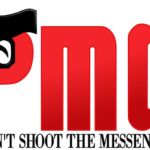 I read recently Robert Lindh’s post on his blog about the argument he makes for re-branding the concept of “open source” and I have to sympathize with it. If you’re a techie you are quite likely accustomed to the concept of open source and probably use some open source framework or stack. In fact you are quite likely a big fan and supporter of some open source framework and probably even promoting it online and offline.
I read recently Robert Lindh’s post on his blog about the argument he makes for re-branding the concept of “open source” and I have to sympathize with it. If you’re a techie you are quite likely accustomed to the concept of open source and probably use some open source framework or stack. In fact you are quite likely a big fan and supporter of some open source framework and probably even promoting it online and offline.
If you’re not a techie though this is where it starts getting interesting. Most people quite frankly don’t care about the software they use as long as it does the job. If something break they take it to the Apple store and someone fixes the problem, part of their “Apple care” package probably. Or if you’re a Windows user you go to Best Buy … or similar. If you look at the enterprise users it’s probably even more simple: someone hands over a laptop to the user and says your password is … and that’s it!
So if you start saying to these users “hey guys here’s an alternative to MS Office, it’s open source and free so you can use it at no cost” their first reaction is … puzzled face: do I need it? You try to explain “yes, you do need it, see you use at the moment MS Office, but that costs money, you can replace that with Open Office! It does the same things but it’s free.” And that’s where you get a second puzzled look: “why do I need to replace it?”
You: “Well, you don’t but you save yourself money if you do.”
User: “But what if it breaks? Can I still take it to Apple Care?”
You: “Errr…..”
Case lost 🙂
This is the case of course of the residential users, which perhaps are not the best segment for increasing open source adoption; however, this attitude can be seen with business users too. They are happy to pay hundreds a month for their hosting service — where their website is hosted on say WordPress. However, they have no idea about that, as far as they know they are paying for someone to take care of their website. Which is perfectly fine, as a customer you are paying for a service, not for technology — it’s down to the hosting company to choose and manage the technology for you. Which, incidentally, is WordPress, so an open source stack.
Based on the above you’d think there is no issue with open source and business users, however, the issue does come up the moment they start talking to you with a view to upgrade their website. If you mention to them you use simply WordPress, there seems to be a lot of eyebrows raised all of a sudden — despite the reassurance that this is a very mature platform (I recall an article which labelled WordPress as a “web OS”). There seems to be a reluctant attitude towards it. The moment you say though “we have built our own CMS on top of WordPress” the attitude is a different one! It could be as simple as the fact that you have packaged a bunch of WordPress plugins and selected a configuration for them such that your website gets the best result out of this, but this seems to not matter in the eyes of some of the clients.
I think part of this could be that people don’t think that something that comes “for free” can have any value — the moment you mention the fact that there has been some effort put into packaging this free solution, the confidence level increases drastically. They are reassured that someone (you!) has put in some work to tune this free solution and it will work for their setup.
So I think as usual there’s 2 sides of the story:
- On one hand, we have to educate the customers that open source is not something worthless, there are in fact a lot of free and open source solutions out there which are solid and ready for “production”
- On the other hand, I think when implementing an open source solution we have to make a bigger effort to inform the clients that there is a lot of effort that goes into rolling out an open source solution, it’s not going to be simply the case of shipping some random open source solution and let them figure it out. And now that I think about it, this latter point probably implies the former — so let’s all do a better job at presenting the implementations based on open source to our clients and this attitude will disappear slowly but surely.
Update, 27-May-2015: Richard Stallman forwarded me this link from GNU which talks also about what “free” in “free software” stands for:
When we call software “free,” we mean that it respects the users’ essential freedoms: the freedom to run it, to study and change it, and to redistribute copies with or without changes. This is a matter of freedom, not price, so think of “free speech,” not “free beer.”
I couldn’t agree better — it’s not about the price, it’s about the freedom, so stop freaking out about open source and free software.







